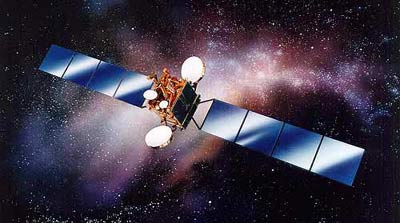Democracy, development, censorship, and satellitesby Taylor Dinerman
|
| Direct broadcast satellites have the potential to be truly liberating forces in the long fight for democracy and against the forces in the Islamic world that make terrorism possible. |
The effort to integrate France’s Muslim population and to stop them from joining jihadi groups will fail if it depends on cutting the youth off from Islamist propaganda. After all, how much good did the efforts of conservative Christians and others to outlaw rock and roll do? On the other hand, so much of the violent content is so laughable that, if the West’s government could be convinced to meet it with ridicule rather than censorship, it would eventually lose whatever power it currently has.
DBS makes possible a communications flow between civilizations. Realistically, the nature of much of what will be communicated will neither be pleasant nor peaceful. For a radical Wahabi or Iranian mullah, Baywatch may be just as much an abomination as an imam’s call to murder Jews and Christians is to Westerners. The answer is not to censor him nor to agree to respect his sensibilities but, perhaps, just to laugh at him. The Arab and Muslim world needs a new sense of humor just as much as they need democracy and development.
One of Ronald Reagan’s most effective rhetorical methods of fighting the Cold War was to include in his speeches, jokes that Eastern Europeans told each other. The tradition of black anti-government humor in places such as Bohemia and Hungary, not to mention among Russian Jews, insured that the US President had a large, and constantly refreshed, supply of very funny stories. It seems that the Arab world offers no such easily accessible source of material. There is hope. A recent cartoon in an Arab newspaper echoed the best of what used to come out of the old Soviet block: Israeli: “We Israelis have the right to demonstrate against Sharon,” Arab: “We Arabs have the same right. We can demonstrate against Sharon.”
No one should think that people in these nations will be ready to listen to our messages if we stop theirs from reaching our shores. They should be given the chance to express themselves, even if we find it difficult to take what they say seriously. Arab political discourse has always tended towards extreme overstatement. This is in contrast to the British tradition of understatement and American sarcasm.
In the absence of widespread multilingualism, and of accurate and sympathetic translations, it would be best if both sides could be taught to cut each other some linguistic slack. This could be a useful role for the TV and radio programming that the US government is beaming into the Arab and Muslim world. In America, politics is important, but it is not the matter of life and death it is for the peoples of the Middle East. The relaxed and messy approach we take to this part of our lives may seem decadent or even offensive to them.
Satellite broadcasting is a powerful tool that, over time, will become even more important than it is now. In the 1940s and 1950s, the US learned that international radio broadcasting was indispensable to waging an effective struggle against Soviet communism. Radio Free Europe and Radio Liberty had a mixed record of effectiveness throughout the Cold War. Occasionally, as during the Solidarity movement’s crisis in the early 1980s, they were remarkably effective. At other times, they did little to help and, sometimes, they did positive harm.
| Satellite broadcasting is a powerful tool that, over time, will become even more important than it is now. |
Propaganda broadcasting is sometimes a useful adjunct to geopolitical and geostrategic policy, but it is no substitute for military success or for political activity. Change, in the Arab and Muslim world, will not come about because people like what they hear and see on US broadcasts. At best, US public diplomacy should aim at giving reformers access to one another’s ideas and to breaking down the sense of isolation that so many of them must feel.
The core goal of America’s long-range strategy, under President Bush, is to bring democratic self-government to the peoples of the greater Middle East. This is an exceptionally hard thing to achieve, but it is the only way to cure the horrible political sickness that has promoted terror and tyranny in that part of the world. America is no doctor, coming with a magical cure. Instead, the US is a combined advisor and cop, telling the peoples of the region that, if they wish to be healthy and prosperous, this is more or less the way to do it. In its role as cop, the US shows them that there is an unpleasant alternative.
